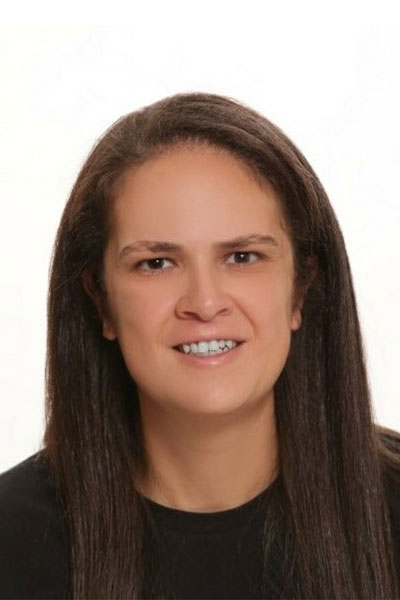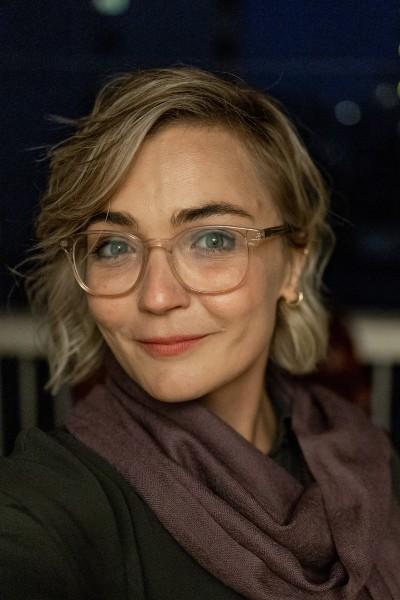Faculty and Researchers
Faculty
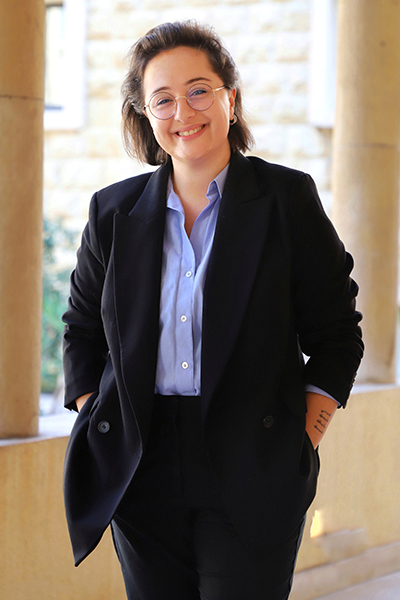
Jasmin Lilian Diab
Assistant Professor of Migration Studies
Director, Institute for Migration Studies
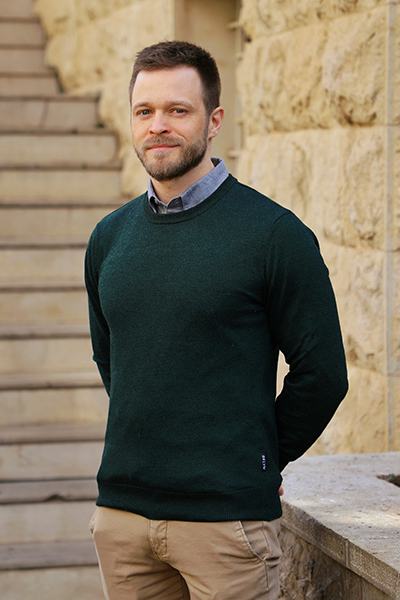
Cory Rodgers
Assistant Professor of Migration Studies
Senior Visiting Fellows
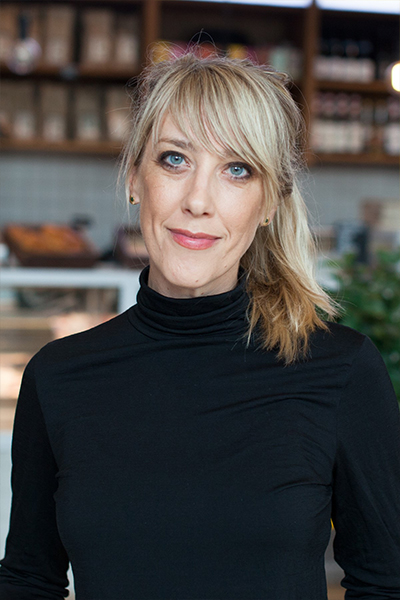
Maja Janmyr
Prof. Maja Janmyr (she/her) is a professor of international migration law at the Faculty of Law, University of Oslo. Focusing on Lebanon and the broader Middle East, her work takes a historical and socio-legal approach to international law, examining in particular how refugees and other migrants understand and engage with legal norms and institutions, and how international refugee law is interpreted and implemented in local contexts. Prof. Janmyr has led several large research projects in international refugee law, and currently holds a Starting Grant (2021-2026) from the European Research Council for the project Protection without Ratification? International Refugee Law beyond States Parties to the 1951 Refugee Convention (BEYOND). This research aims to construct a more global perspective on the nature of international refugee law by focusing on the role and practice of states that are not contracting parties to the 1951 Refugee Convention. These non-signatory states are predominantly found in the Middle East and South Asia and have traditionally been seen as ‘exceptions’ to international refugee law.
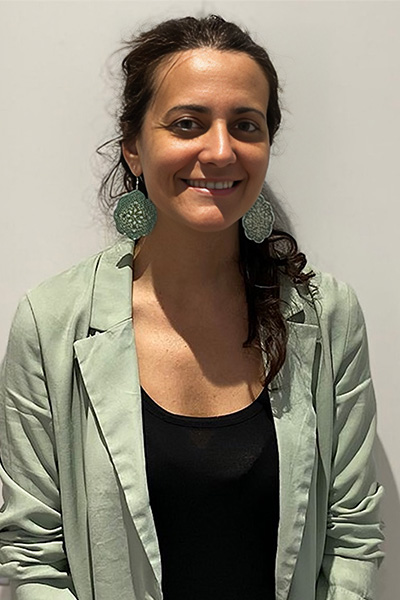
Estella Carpi
Dr. Estella Carpi (she/her) is a social anthropologist specialized in humanitarianism, identity politics and forced displacements, with a primary focus on Lebanon. She is an associate professor in Humanitarian Studies at University College London. Before and after receiving her PhD from the University of Sydney (2015), she worked extensively for several research, policy and academic institutions in Egypt (UNDP and IDRC), Lebanon (AUB and UN-Habitat), Türkiye (Koç University) and the United Arab Emirates (NYUAD and Trends Research & Advisory). She is the author of The Politics of Crisis-Making: Cultures of Assistance and Forced Displacement in Lebanon, published with Indiana University Press in 2023. She also provides consultancies on safeguarding in vulnerable contexts for NGOs.
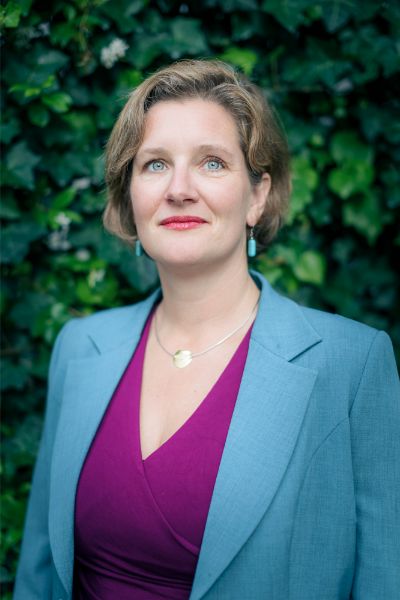
Jill Alpes
Dr. Maybritt Jill Alpes (she/her) is a legal anthropologist of migration who ethnographically studies the role of brokers and street-level bureaucrats in migration governance. She currently acts as principal investigator for “REMOVED: Removal Infrastructures for Syrians in Lebanon and Turkey,” funded by the Gerda Henkel Foundation (2024- 2026). Visiting researcher at CESSMA in Paris, at CESSMIR in Ghent and at IFPO in Beirut, Jill also received the prestigious Marie Curie fellowship for a project entitled “Chain expulsions: Syrian refugee returns from Europe and Lebanon” (2026 – 2029). Jill’s main research sites are in Cameroon and Lebanon, with additional fieldwork sites in West Africa (Nigeria, Niger, Mali, DRC), Turkey, and Europe (France, Greece, Italy, Cyprus). Her research combines qualitative-ethnographic methods (observations, interviews) with legal methods (analysis of laws and judgments) and new participatory methods, especially the innovative “future literacy labs.” Jill’s publications decenter debates on migration risks from the perspective of people in places of departure, transnational families, migrant care workers, asylum seekers at European borders, as well as returnees and deportees. Her monograph “Abroad at any cost: Brokering High-risk migration and illegality in West Africa (Routledge),” challenges smuggling and trafficking narratives by considering mobility control as state-making. Jill is a member of the UN Working Group on Returns of the UN Migration Network and has also worked for and in collaboration with foundations and migrants and refugee rights organizations, such as Amnesty, Oxfam, the Danish Refugee Council and Picum.
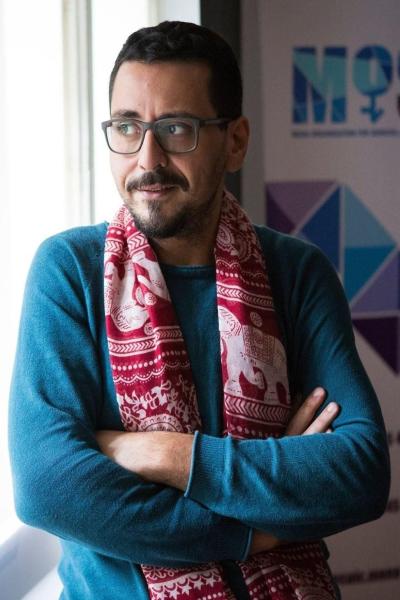
Charbel Maydaa
Dr. Maydaa (he/she/they) is the founder and former Director of MOSAIC MENA (MOSAIC, the MENA Organization for Services, Advocacy, Integration and Capacity building) a non-governmental organization committed to the improvement of the health and wellness of LGBTIQ persons in the MENA region. He is a certified trainer on Sexual Orientation, Gender Identity and Expression, Sex Characteristics, Reproductive Health/Rights and Clinical Management for women and men survivors of sexual violence/rape. He currently serves as the Alternate Co-Chair and West Asia Representative of ILGA Asia, as well as a Researcher and Co-Investigator at the UKRI GCRF Gender, Justice and Security hub at the London School of Economics. Dr. Maydaa is the Co-author of the paper “Trust no one, beware of everyone: Vulnerabilities of LGBTI Refugees in Lebanon” published in the edited volume “A Gendered Approach to the Syrian Refugee Crisis” (Routledge 2017).
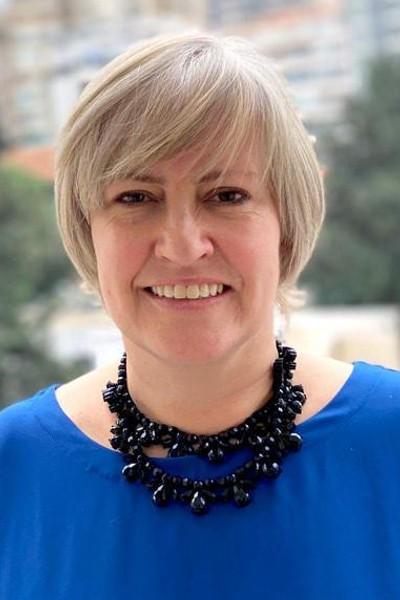
Jennifer Skulte-Ouaiss
Dr. Skulte-Ouaiss (she/her) is a longtime educator, researcher, and administrator. Her research has been published in Ethnopolitics, Education + Training, and Identities, among others, focusing on gender, higher education, migration, and identity. Her most recent work looks at women and work during the COVID-19 epidemic, focusing on Lebanon. Skulte-Ouaiss is also involved in higher education assessment and strategic planning. She is the founding director of LAU’s Title IX Office and she is the MEPI Gender Expert for mainstreaming gender throughout LAU’s teaching, research, policies, and procedures. She earned her PhD at the University of Maryland.
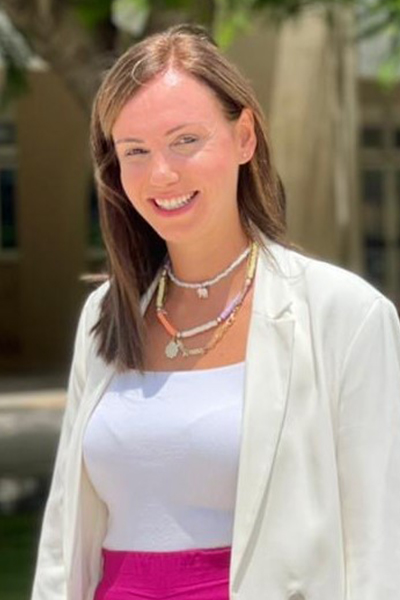
Yasmine Fakhry
Dr. Yasmine Fakhry (she/her) is a social public health researcher with a multidisciplinary background. Her research interest is around the complex interplay between health, nutrition, food security, health systems, conflict, political factors, climate change and sustainability, particularly as these factors affect marginalized populations such as migrants, refugees, internally displaced persons, persons with disabilities, women and children. Her work is grounded in principles of human rights, sustainable development goals and social justice. Her most recent research, a PhD project titled “Beyond Cells and Walls: Exploring Human Rights and Social Justice through Health and Nutrition in Lebanese Prisons,” reflects her passion for improving prison conditions in Lebanon. Dr. Fakhry is an advocate for prison reforms, particularly from a health and nutrition perspective, believing that these factors contribute to the overall sustainability of Lebanese society. She is an active member of the working group for prisons in Lebanon. A licensed dietitian with a decade of experience in hospitals, NGOs and private and non-profit consultancies, Dr. Fakhry is an expert in nutrition and food management. She is a member of the Lebanese Order for Dietitians and a member of its administrative committee. She currently serves as well as an advisor to the Board of Directors of Ahlouna NGO, where she focuses on strategic development, program implementation, policy formulation, proposal writing, fundraising, and building partnerships with local and international organizations.
Visiting Fellows
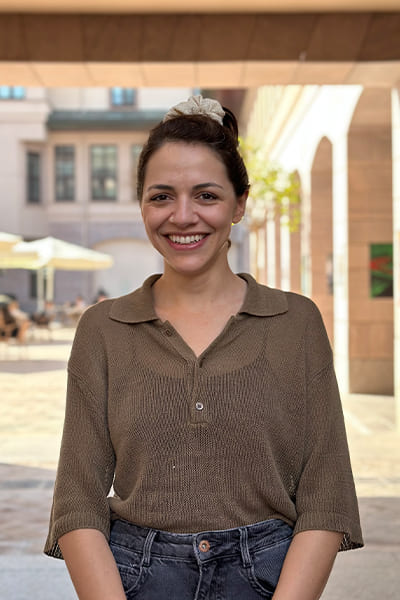
Karina Goulordava
Karina Goulordava (she/her) is a PhD candidate in sociology at Koç University, Istanbul, and a researcher at the university’s Migration Research Center (MiReKoc). Her dissertation examines the historical, political, social and spatial dimensions of migration to Lebanon from 1943 to 2019. Her doctoral research emphasizes South-South migration patterns within migration studies, adopts a Southern Theory approach to migration theorization, and applies historical and archival methods to migration research. She also has a long-term interest in researching migration connections between former Soviet states and Arab countries. Recently, she has conducted and published research on the migration of Russians to Turkey since 2022 in the context of the Russia-Ukraine War. Before starting her PhD, Karina worked as a researcher in the humanitarian and development sectors in Lebanon. She earned a BA from the University of Pittsburgh, a master’s in urban planning and policy from the American University of Beirut, and was a former Fulbright Fellow at Utrecht University.
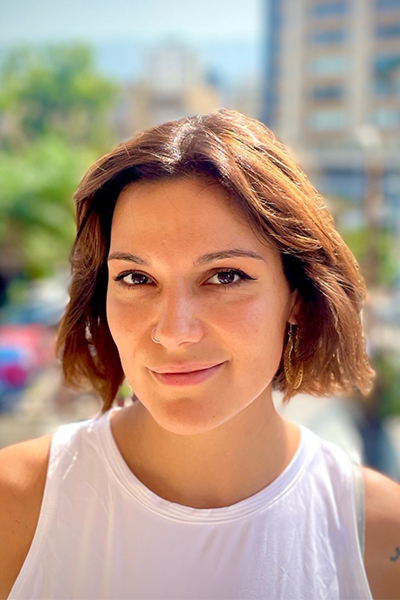
Sonia Caballero Pradas
Sonia (she/her) is an Erasmus Mundus scholar pursuing a Master in Migration and Intercultural Relations (EMMIR), a program that has allowed her to get interdisciplinary experience and narrow her continuous learning on gender, migration and health at the University of the Witwatersrand of Johannesburg, South Africa. She holds a BA in Modern Languages, Culture, and Communication, completed at Universidad Autónoma de Madrid (Spain), University of Edinburgh (UK) and Yarmouk University (Jordan). Her BA award-winning thesis explored access to education, early marriage and inclusion for Syrian refugee women and girls outside of the camps residing in rural Jordan. Before her research career, Sonia worked at Saint-Joseph University of Beirut through the Spanish Agency for International Development Cooperation (AECID) and obtained diplomas in teaching Spanish to asylum seekers and refugees. Her research, framed by interculturalism, intersectionality and urban ethnography, explores migrant domestic work in Lebanon and the interactions between local and migrant, heteronormative and LGBTIQ+ communities in Beirut, focusing on the everyday crossing of borders represented by segregation, privatisation and biopolitics.
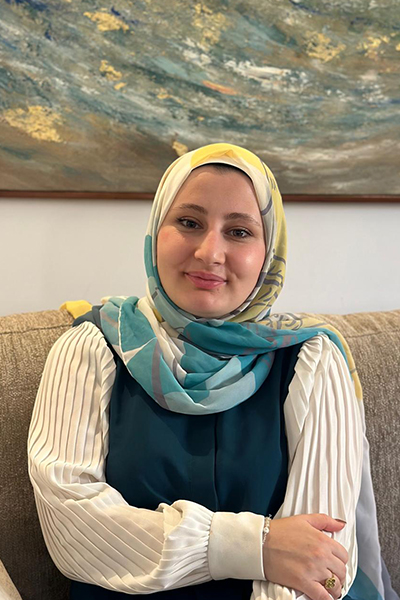
Duaa Nooreddine
Duaa Nooreddine (she/her) is a graduate student completing her MA in Migration Studies at LAU. She is an associate specialist in GBV capacity development at the International Medical Corps, where she supports the capacity development of GBV departments and facilitates the growth of GBV programs with local partners. She has extensive experience working across various protection settings and organizations, supporting GBV prevention and response initiatives in diverse emergency contexts and collaborating closely with refugee and migrant communities. She continues to train with UNFPA on the integration of gender-based violence and sexual and reproductive health. Her research interests include exploring protection frameworks, community-led initiatives, and humanitarian responses, with a particular focus on how these intersect with GBV dynamics in marginalized and crisis-affected populations.
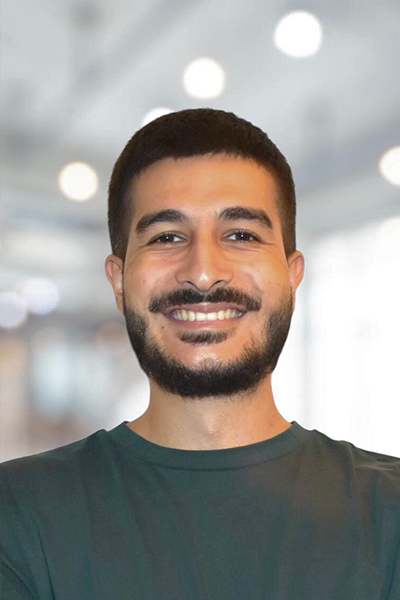
Jad Malass
Jad (he/him) is a Chevening alumnus and master’s graduate from the London School of Economics and Political Science (LSE) where he specialized in international migration and public policy. His research interests focus on the politics of borders and migration diplomacy, the study of cultural and identity boundaries, and the analysis of discourses on vulnerable communities, particularly migrants. His dissertation at the LSE investigated discourses on Syrian and Ukrainian refugees in the UK press. Jad is currently a visiting research fellow at LAU’s Institute for Migration Studies, where he contributes to multiple projects, including those focused on the accessibility of cash assistance for people with disabilities in Lebanon and on gender-based violence in the context of recent displacement. Jad is also a trained migration professional under the EuroMed Migration initiative in Malta and holds an MA in Migration Studies along with a BA in Political Science and International Affairs from LAU.
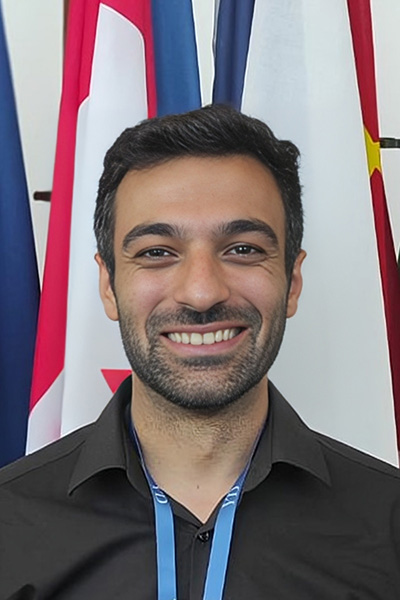
Abbas Ismail
Abbas Ismail (he/him) is affiliated with the Centre for International Studies of Lisbon (CEI) and is a PhD candidate in International Studies at the ISCTE University Institute of Lisbon. He was awarded a scholarship by the Foundation for Science and Technology (FCT). His research evaluates mediation strategies employed by international and regional organizations—such as the Arab League, the United Nations and the European Union—in the Syrian Peace Process, focusing on their effectiveness. He explores how each organization’s unique mediation strategy addresses the complexities of the conflict, considering specific contextual factors like geopolitical dynamics and cultural norms. Through his analysis, he seeks to provide valuable insights into the dynamics of mediation and peacebuilding efforts in the Middle East, also highlighting the influence of these efforts on migration patterns and population movements. Before joining the Institute for Migration Studies at LAU, Abbas was a visiting researcher at The Arab and Muslim Worlds Observatory (OMAM) at the Université libre de Bruxelles (MSH-ULB) and conducted fieldwork in Brussels and Beirut. He was also a Civil War Paths fellow based in the Department of Politics at the University of York, United Kingdom.
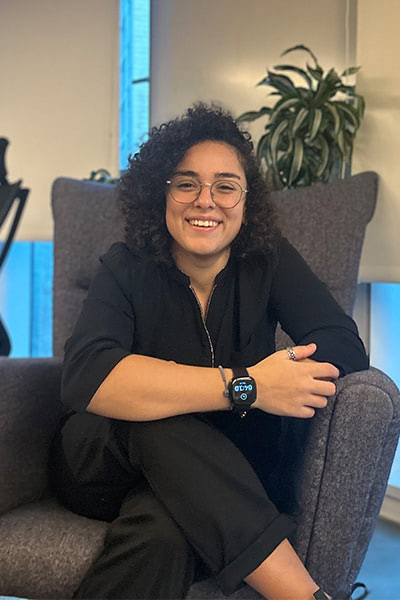
Yara El Zakka
Yara (they/them) holds an MA in Migration Studies and a Bachelor of Architecture from the Lebanese American University. Their research interests are centered on refugee studies, especially at the intersection of politics, space, gender and development. In their main research, Yara examined the interrelationship between youth development and spatial configurations, focusing on the socio-spatial inequalities youth face in Palestinian refugee camps in Lebanon. They have also worked on two main studies on the Lebanese diaspora and political transformation in Lebanon. They are currently working on different projects that revolve around politics and humanitarianism, refugee and asylum routes and spatio-political containment at border crossings. Apart from academic research, Yara has been working in the humanitarian and emergency fields for over four years, focused on youth and adolescent development, partnerships and coordination, and knowledge management in Palestinian Refugee Camps and gatherings in Lebanon.

Josiane Matar
Josiane (she/her) is a D Phil candidate in Migration Studies and has been awarded the Rhodes scholarship for Syria, Jordan, Lebanon and Palestine. Her research explores emerging practices of governmentality and the socio-political and economic linkages that develop between refugees and the rural poor in displacement-affected communities facing economic hardships. Josiane holds a master’s degree in International Public Management from the Paris Institute of Political Studies – Sciences Po and a bachelor’s in Political Science and International Affairs from the Lebanese American University. Prior to joining Oxford, Josiane volunteered and conducted field research in several refugee camps across Lebanon. She has also worked as a consultant for the research division at the UN International Organization for Migration (IOM) and as an events and media coordinator at the Malcolm H. Kerr Carnegie Middle East Center.
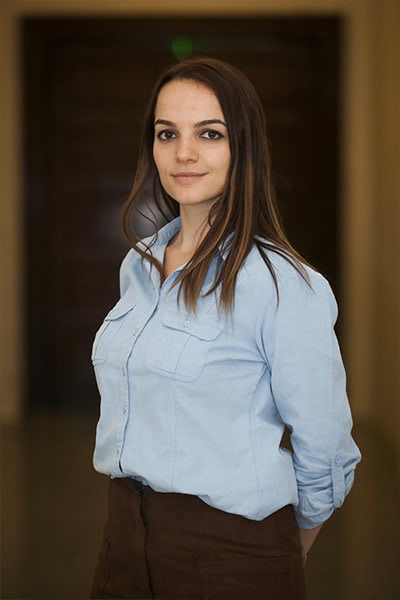
Asli Saban
Saban (she/her) graduated from Başkent University’s Department of Social Work in 2014. She has been working in the migration space for over five years now, with an emphasis on refugees and displaced groups in Turkey, Lebanon and the Middle East. She is a former member and regional focal point of the United Nations Major Group for Children and Youth’s Migration Working Group. Asli has worked as a Research Consultant for the Global Compact for Migration implementation in Jordan, Lebanon and Egypt. Her work mainly focuses on marginalized migrant and refugee groups, labor rights, child protection and GBV, with a recent focus on the intersections of these areas of focus within the Dom Syrian refugee community in the MENA.
Dana Azzeh
Dana (she/her) is an Educator and an independent researcher. She holds a Master’s degree in social work from Columbia University, with a focus on international social welfare and services for immigrants and refugees. Dana worked as a research assistant with several academic institutions, as well as a Lecturer at the German Jordanian University, where she taught a course on “Conducting Research with Refugees and Vulnerable Populations” alongside other social work courses. In addition to her academic background, Dana is a humanitarian practitioner, and has worked for UNHCR and other NGOs in different capacities across Jordan, Turkey, and Uganda. Her current research centers on identity formation among Palestinian refugee youth in Lebanon.
Kristýna Kvasničková
Kvasničková (she/her) is a PhD student of Social Geography and Regional Development (SGRR) and a researcher at GEOMIGRACE Research Center at the Charles University (CU) in Prague, Czechia. She is a member of a research team focusing on factors influencing immobility in the Global South countries. She is a member of the Czech Evaluation Society CES and has previously worked as a program director of an NGO in Poland focused on Global Education. She holds a bachelor’s degree from the University of Ostrava in NGO management and a master’s degree in Global Migration and Development Studies from CU. Kristýna also holds a diploma from Ethics in Journalism that helps her navigate her work as a freelance photojournalist focused on social and political issues. Her published work includes the Czech newspapers Deník N and Hospodářské Noviny.
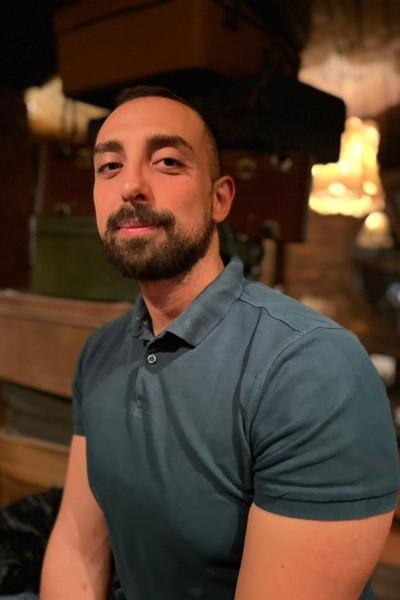
Bechara Samneh
Samneh (he/him) is the Special Projects Coordinator at ILGA Asia for the Special Project to Assist LGBTI Afghans at Risk. He serves as one the MENA Organization for Services Advocacy Integration and Capacity Building (MOSAIC MENA) Board Members, where his work is focused on finding specialized and comprehensive service provisions for marginalized groups on a national and regional level. Additionally, he works in research and advocacy for policy reform on intersectional topics specialized in SOGIESC (Sexual Orientation & Gender Identity/Expressions, and Sex Characteristics), refugees and environmental justice. He also served as the Youth Program Coordinator at MOSAIC, working on the capacity development of youths and their respective communities. He publishes academic and para-academic articles on social engagement in the fight against human rights violations, especially in the areas of LGBTIQ+ rights violations in the MENA region. He holds an MA in Economics and Policies from University College London (UCL), an MA in International Management of Public Procurement from the University of Rome - Tor Vergata, and a BA in Chemical Engineering from the American University of Beirut (AUB).
Research Affiliates
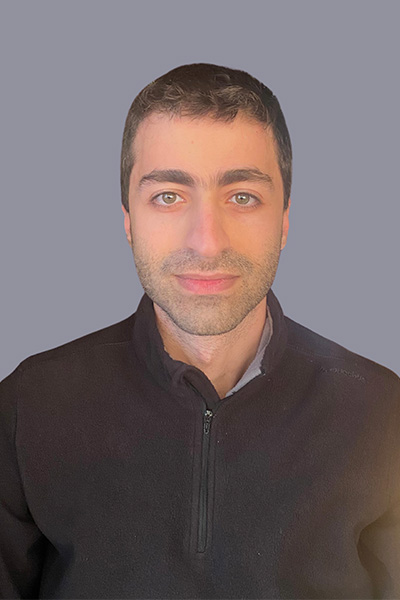
Miguel Mendelek
Mendelek (he/him) is a PhD candidate in Political Science at Saint Joseph University (USJ). He completed his BA in Political Science and International Affairs in 2018, and his MA in International Affairs in 2021 at LAU. His research interests are focused on social movements, migration, security, governance and gender studies. His approach is multidisciplinary in nature, and aims to better understand interconnected events in the historical, political, and international landscapes.
Former Faculty and Researchers
- Ramzi Abou Ismail, Senior Visiting Fellow
- Drew Mikhael, Senior Visiting Fellow
- Houssein Al Malla, Visiting Fellow
- Dima Masoud, Visiting Fellow
- Maria Calvário da Paz, Visiting Fellow
- Romain Mellies Horiot, Visiting Fellow
- Phillipe Boncour, Senior Visiting Fellow
- Filippo Dionigi, Senior Visiting Fellow
- Mohammad Al-Abbas, Visiting Fellow
- Carl Johannes, Visiting Fellow
- Rasha Akel, Research Affiliate
- Jana Al Hassanieh, Research Affiliate
- Hucen Sleiman, Research Affiliate
- Chiara Scissa, Visiting Fellow
- Anna Bailey-Morley, Visiting Fellow
- Tafhimur Rahman, Visiting Fellow
- Dr. Paul Tabar, Founding Director
- Andrew Denison, Research Affiliate
- Dr. Rajai ‘Ray’ Jureidini, Senior Visiting Fellow
- Paul V. Dudman, Visiting Fellow
- Palig Giritlian, Research Affiliate
- Elana Wong, Visiting Fellow
- Prerna Rathi, Visiting Fellow
- Janda Barazi, Research Affiliate
- Ziad El Jbeily, Research Affiliate
- Karnie Kendirjian, Research Affiliate
- Hussein Kobeissi, Research Affiliate
- Joelle Oneissi, Research Affiliate
- Tala Lakiss, Research Affiliate
